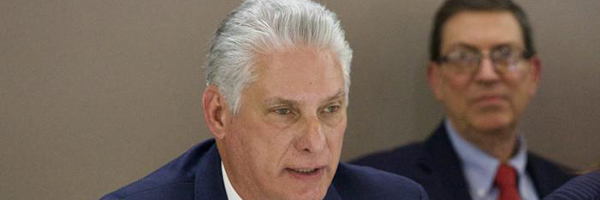Paris, June 22 (RHC) – Cuban President Miguel Díaz-Canel advocated today for a new international financial order that stops plunging Southern countries into underdevelopment and subjecting them to the domination of obsolete institutions.
Speaking at the summit called by France for a New Global Financial Pact, the president, who participated as the head of the Group of 77 plus China, described the current order as unjust, undemocratic, speculative, and exclusionary.
He also denounced the disastrous consequences of the current financial architecture for developing nations, illustrating his point with examples such as the doubling of their external debt in the last decade and the fact that they had to allocate almost $380 billion from their reserves to defend their currencies.
Under such unfavorable conditions, the South cannot generate and access the $4.3 trillion annually it needs to achieve the Sustainable Development Goals in the remaining decade of action, he warned.
“Our peoples cannot and must not continue to be laboratories for colonial recipes and renewed forms of domination that use debt, the current international financial architecture, and unilateral coercive measures to perpetuate underdevelopment and increase the coffers of a few at the expense of the South,” he said.
Díaz-Canel participated in one of the event’s forums, alongside host head of state Emmanuel Macron and the presidents of South Africa, Cyril Ramaphosa, and Colombia, Gustavo Petro, among other leaders and personalities.
According to the Cuban leader, the prevailing scenario demonstrates the urgent need for a new and more just international order.
In his view, this requires the reform of international financial institutions, both in terms of governance and representation, as well as access to financing, which take into account the legitimate interests of developing countries.
These entities are designed to profit from the reserves of the South, reproducing a modern colonialism scheme, he stressed at the Palais Brongniart in Paris.
Likewise, he demanded an increase in official loans to achieve the Sustainable Development Goals and additional resources supported by concrete actions in terms of access to markets, capacity building, and technology transfer. (Source: PL)

 Granma, Cuba, June 23, 2023 —
Granma, Cuba, June 23, 2023 —